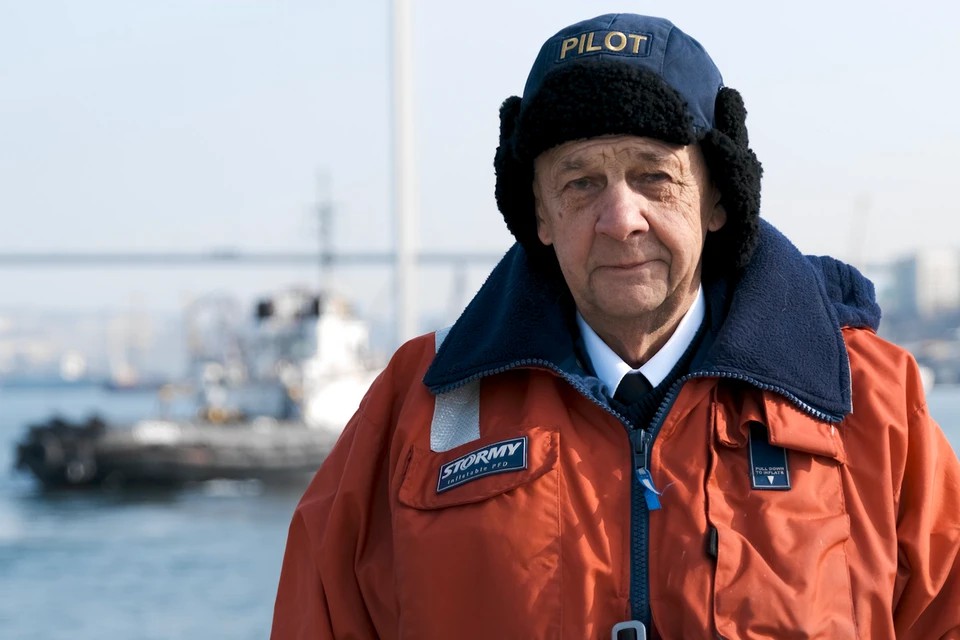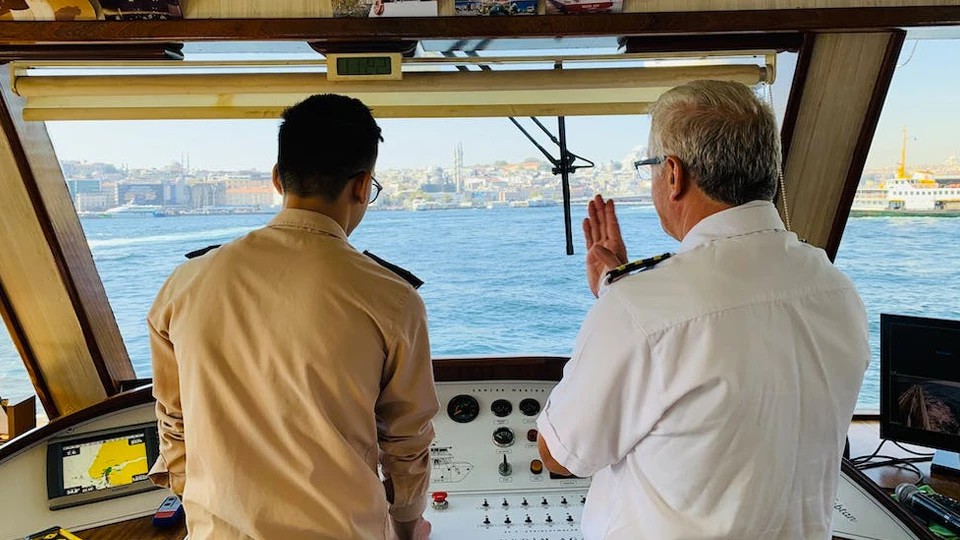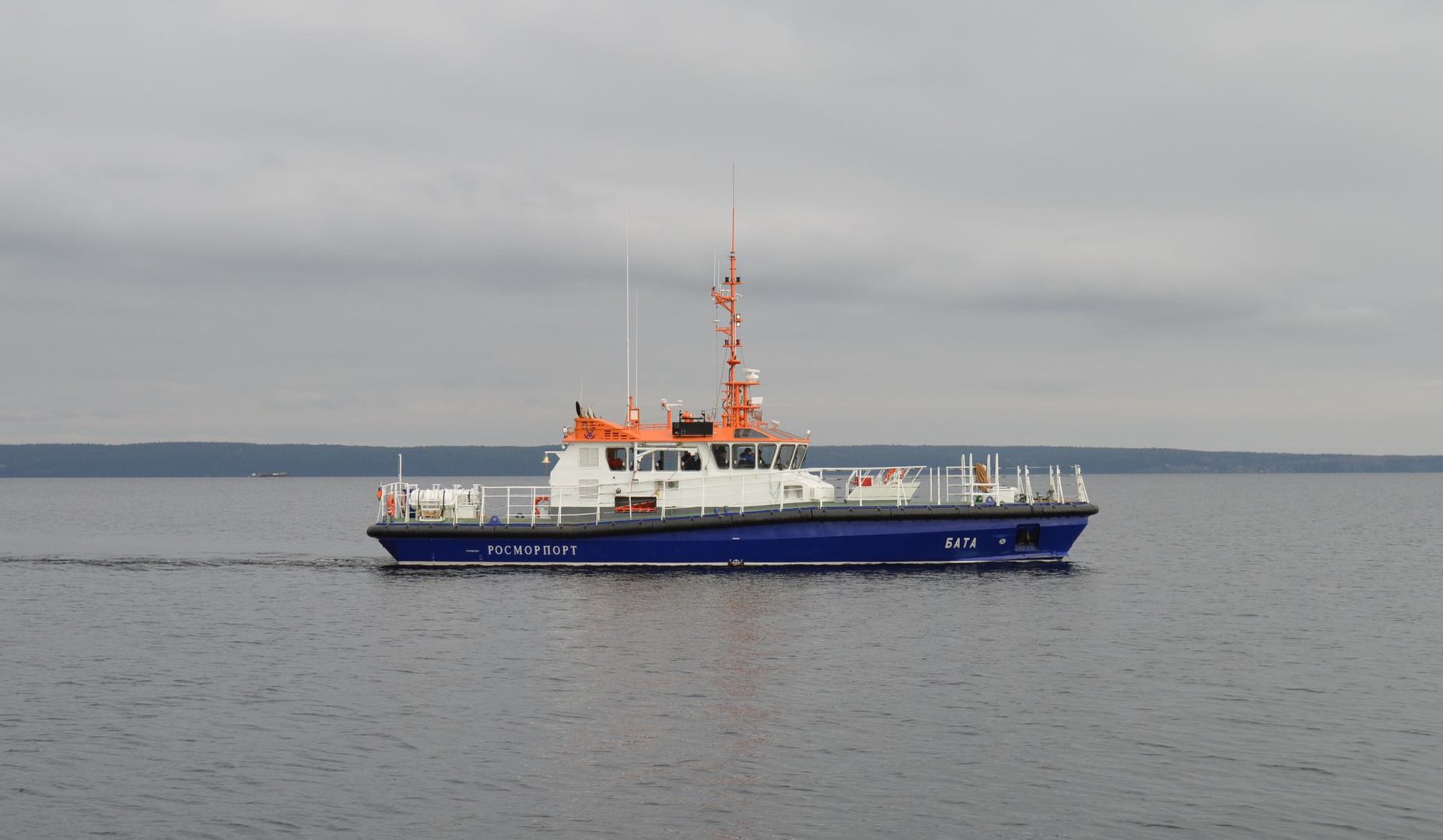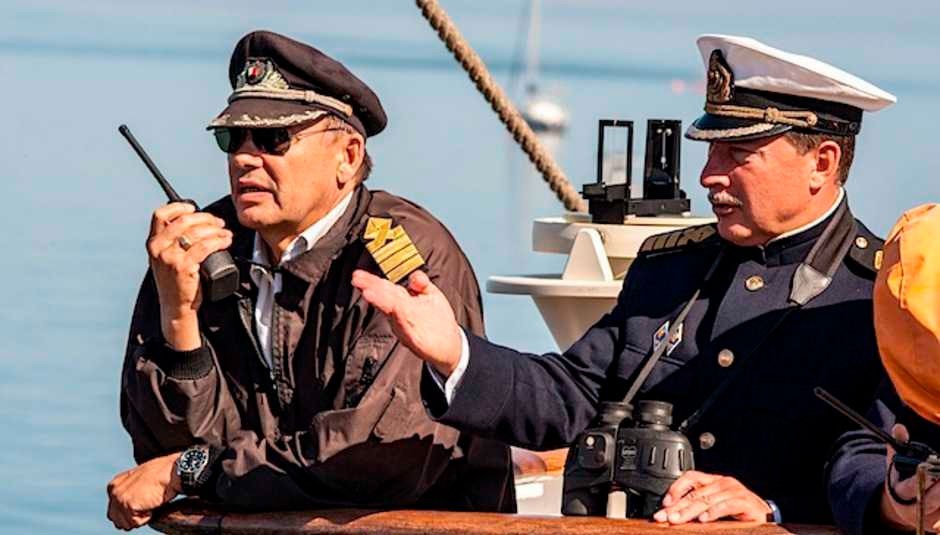- Position:
- 2nd engineer
Pilot on a ship

On board a sea vessel, the captain is the sole leader and person responsible for the safety of navigation. It is he who is responsible for organizing navigation, but there are situations when he is forced to transfer control of his vessel to another person - the pilot. Legally, he follows the pilot's recommendations. The presence of pilotage is a prerequisite when moving in the waters of seaports, in straits and narrows with high traffic intensity and the risk of an emergency.
A pilot is a kind of captain, only operating in a limited area. Knowledge of the peculiarities of local navigation, shoals, currents and other factors affecting the safety of navigation allows him to cope much more confidently with guiding ships to a berth or entering the open sea, passing through straits and so on.
It is not surprising that pilots are mostly former merchant fleet captains with extensive experience. It must be admitted that this profession has not received wide publicity and only a limited number of people associated with the merchant fleet are familiar with it. However, it is one of the oldest jobs at sea, dating back centuries.
Who can become a pilot?

In accordance with existing rules, any person who holds captain's certificates on merchant ships can apply for a vacancy at sea as a pilot. In addition, senior capital assistants (seniors) can also apply for this position, but for them the minimum required qualification for working in the position is set at least two years. After this, they can also undergo pilot training and receive a certificate.
In a number of cases, when there is a shortage of people willing to work as a pilot due to lower salaries compared to work on sea vessels, it is allowed to attract graduates of higher educational institutions with honors to work after they have passed the necessary qualification exams. This practice is often used in other countries, and the specific conditions for selecting candidates are determined at the level of national legislation.
Before becoming a pilot, applicants are required to work as a trainee for 12 months. During this time, a person acquires the necessary work skills and becomes thoroughly familiar with the peculiarities of navigation and navigation in his area of responsibility. Next, you will need to pass qualification exams at the maritime port administration. The result of this will be the issuance of appropriate documents confirming the right to work as a pilot in the port. After appointment to the position, the newly hired pilot is assigned a probationary period, during which he must confirm his qualifications and competence.
The duration of pilot training may vary depending on specific conditions and is set at the local level depending on the complexity of the work ahead (the degree of complexity of the navigation situation at the work site, traffic intensity, weather and climatic conditions, and so on). This is especially true for university graduates who do not have experience working independently on ships; they are required to obtain certificates corresponding to positions not lower than second mate.
It is worth noting that in Russia the practice of attracting university graduates to pilot positions has not become widespread, so the position of pilot can primarily be taken by persons with specialized navigation education and with experience in a position not lower than second mate.
Taking into account the fairly high salaries of pilots and the ability to do without months-long flights, there are no problems with staffing these positions. For those sailors who want to earn decent money, albeit less than at sea, and at the same time be at home, the profession of a pilot is simply optimal.
Necessity

Among the main reasons why the profession of a maritime pilot is very important, it is worth mentioning:
- In a difficult situation with an increased risk of a ship collision, grounding, damage to berthing structures or other consequences, recommendations to the captain from an experienced specialist with full knowledge can reduce the level of danger and chart the optimal course.
- Large seagoing vessels, especially oil tankers, have minimal maneuverability, so in cramped conditions of the fairway it is necessary to move along an ideal course. In such a situation, the presence of an experienced pilot on board the vessel only increases.
- In the presence of a narrow entrance area, limited width of the fairway, or the presence of natural or artificial obstacles along the route, the work of a pilot is irreplaceable, since only he has complete information about the navigation situation and is able to navigate the vessel without problems.
Taking into account all of the above, pilotage is always carried out only by local pilots who know all the peculiarities of traffic in their area of responsibility. Engaging a pilot can significantly reduce the potential risks of an emergency, which in turn allows the shipowner to avoid huge financial costs for eliminating their consequences and paying fines.
The maritime pilot and the captain on board the ship must work closely together, since the captain remains the person responsible for the safety of the ship. Lack of communication and mutual understanding can cause the most severe consequences.
Given the importance of a pilot, work at sea in this position requires mandatory licensing. Thus, only a person who has a pilot’s license can apply for a vacancy at sea, and it is issued for the right to carry out professional activities only in a limited water area. Accordingly, it will not be possible to work with a license from one port in another seaport.
The pilot is not a member of the crew, so he is not present on board the ship on a permanent basis. He disembarks on board the vessel from a pilot boat or helicopter, depending on the situation, immediately before the vessel approaches the point where pilotage is already required. Not being a member of the crew, the pilot acts on the navigation bridge as an expert who has a perfect command of the peculiarities of navigation in the area and provides the captain with recommendations for plotting a course and maneuvering. After completing the work, the pilot leaves the ship.
It is worth noting that there are ships with certificates that do not require pilotage. Most often, these are small vessels, the navigation area of which is limited to small zones, as a result of which full-time captains have the necessary skills to work independently without external expert support.
How to become a pilot

The history of navigation goes back thousands of years, and crossing the seas became the basis of all geographical discoveries. The size of ships gradually increased, shipping became more intense, navigation became more complicated, which required the presence of real professionals on board the ship.
Gradually, to ensure the safety of navigation in ports, straits and narrows, teams of security experts were formed on the ground, responsible for guiding sea vessels within the boundaries of a specific area - pilots. They are not part of ship crews and do not work for shipping companies, but act as employees of local maritime administrations responsible for a specific port or water area.
Pilot is a unique position in many ways. This person is not, in the full sense, a seaman, since he gets on the ship only at the moment of escorting the ship to or from the port. However, only experienced merchant seamen can become a pilot. Most often, these are captains who have extensive experience and have decided to give up long-distance voyages and be closer to family and home.
The career of a pilot does not provide for vivid impressions or visits to other countries, but it is no less important and responsible, because he is responsible for ensuring the safety of people and property in areas with special conditions for vessel traffic.
The responsibilities of a pilot are quite extensive; he is required not only to know all the details of navigation, navigational conditions and fairways for movement in the area of responsibility, but also the characteristics of the movement of ships, the controls of ships of various types and perfect English to be able to fully communicate with the captain and other crew members ships on board which he will work.
In most cases, pilots work on an irregular work schedule; they are required to start work at any time of the day when the need arises to pilot sea vessels.
The responsibilities of a pilot are quite extensive, and the pay is decent. In private companies, earnings are very high, while work in government structures of port administrations is paid more modestly, and the practice of combining a tariff schedule and various allowances is used, so a pilot’s earnings may vary depending on a particular port.
Of course, the salary level of a pilot will be significantly lower than that of a captain on merchant ships, but the decrease in the level of material remuneration in this case must be considered as payment for the opportunity not to go to sea for several months and stay at home with loved ones.
- Position:
- Chief engineer
- Position:
- Electrician engineer
- Position:
- 2nd engineer
- Position:
- Electrician engineer
